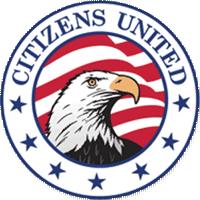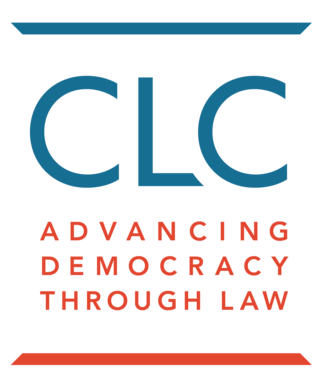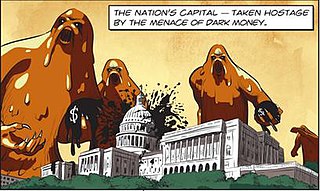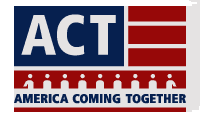
Campaign finance laws in the United States have been a contentious political issue since the early days of the union. The most recent major federal law affecting campaign finance was the Bipartisan Campaign Reform Act (BCRA) of 2002, also known as "McCain-Feingold". Key provisions of the law prohibited unregulated contributions to national political parties and limited the use of corporate and union money to fund ads discussing political issues within 60 days of a general election or 30 days of a primary election; However, provisions of BCRA limiting corporate and union expenditures for issue advertising were overturned by the Supreme Court in Federal Election Commission v. Wisconsin Right to Life.

Citizens United is a conservative 501(c)(4) nonprofit organization in the United States founded in 1988. In 2010, the organization won a U.S. Supreme Court case known as Citizens United v. FEC, which struck down as unconstitutional a federal law prohibiting corporations and unions from making expenditures in connection with federal elections. The organization's president and chairman is David Bossie.
In the United States, a political action committee (PAC) is a tax-exempt 527 organization that pools campaign contributions from members and donates those funds to campaigns for or against candidates, ballot initiatives, or legislation. The legal term PAC was created in pursuit of campaign finance reform in the United States. Democracies of other countries use different terms for the units of campaign spending or spending on political competition. At the U.S. federal level, an organization becomes a PAC when it receives or spends more than $1,000 for the purpose of influencing a federal election, and registers with the Federal Election Commission (FEC), according to the Federal Election Campaign Act as amended by the Bipartisan Campaign Reform Act of 2002. At the state level, an organization becomes a PAC according to the state's election laws.

The Federal Election Commission (FEC) is an independent agency of the United States government that enforces U.S. campaign finance laws and oversees U.S. federal elections. Created in 1974 through amendments to the Federal Election Campaign Act, the commission describes its duties as "to disclose campaign finance information, to enforce the provisions of the law such as the limits and prohibitions on contributions, and to oversee the public funding of Presidential elections." It is led by six commissioners who are nominated by the president and confirmed by the Senate.

The Bipartisan Campaign Reform Act of 2002, commonly known as the McCain–Feingold Act or BCRA, is a United States federal law that amended the Federal Election Campaign Act of 1971, which regulates the financing of political campaigns. Its chief sponsors were senators Russ Feingold (D-WI) and John McCain (R-AZ). The law became effective on 6 November 2002, and the new legal limits became effective on January 1, 2003.
A 527 organization or 527 group is a type of U.S. tax-exempt organization organized under Section 527 of the U.S. Internal Revenue Code. A 527 group is created primarily to influence the selection, nomination, election, appointment or defeat of candidates to federal, state or local public office.
The Media Fund is a 527 group, active in U.S. politics, which supported Democrat John Kerry's campaign for President. It was formed in 2002, and is led by Harold M. Ickes, a former aide to President Bill Clinton. Its chief fundraiser is Ellen Malcolm, a former fundraiser for EMILY's List. Billionaire George Soros was among the largest donors to the Fund. According to the New York Times, the Media Fund raised $45 million to run issue ads in key swing states. The Media Fund is one of several 527 groups which supported Kerry; others include America Coming Together and MoveOn.org. After the election, the group experienced a dramatic drop in fundraising success; media reports speculated that major donors had given up on the organization, and were turning their attention to other, more long-term Democratic projects.
Swift Vets and POWs for Truth, formerly known as the Swift Boat Veterans for Truth (SBVT), was a political group of United States Swift boat veterans; former prisoners of war of the Vietnam War, formed during the 2004 presidential election campaign. It was done for the purpose of opposing John Kerry's candidacy for the presidency; the campaign inspired the widely used political pejorative "swiftboating", to describe an unfair or untrue political attack. The group disbanded and ceased operations on May 31, 2008.
Lyndon LaRouche's United States presidential campaigns were a controversial staple of American politics between 1976 and 2004. LaRouche ran for president on eight consecutive occasions, a record for any candidate, and tied Harold Stassen's record as a perennial candidate. LaRouche ran for the Democratic nomination for President of the United States seven times, beginning in 1980.

The financing of electoral campaigns in the United States happens at the federal, state, and local levels by contributions from individuals, corporations, political action committees, and sometimes the government. Campaign spending has risen steadily at least since 1990. For example, a candidate who won an election to the U.S. House of Representatives in 1990 spent on average $407,600, while the winner in 2022 spent on average $2.79 million; in the Senate, average spending for winning candidates went from $3.87 million to $26.53 million.
The presidential election campaign fund checkoff appears on US income tax return forms as the question "Do you want $3 of your federal tax to go to the Presidential Election Campaign Fund?".
Progress for America (PFA) and its affiliate Progress for America Voter Fund (PFA-VF) are national tax-exempt organizations in the United States. PFA was established in 2001 to support George W. Bush's "Agenda for America". The PFA Voter Fund, which was set up in 2004, raised US$38 million in support of Bush's 2004 election bid.
Political funding in Australia deals with political donations, public funding and other forms of funding received by politician or political party in Australia to pay for an election campaign. Political parties in Australia are publicly funded, to reduce the influence of private money upon elections, and subsequently, the influence of private money upon the shaping of public policy. After each election, the Australian Electoral Commission distributes a set amount of money to each political party, per vote received. For example, after the 2013 election, political parties and candidates received $58.1 million in election funding. The Liberal Party received $23.9 million in public funds, as part of the Coalition total of $27.2 million, while the Labor Party received $20.8 million.
The American Leadership Project (ALP) was a political organization in the United States, active during the 2008 Democratic presidential primary elections and the subsequent presidential election. It was an unincorporated association organized under section 527 of the IRS code, formed in February 2008. The ALP did not endorse any candidate, and was not officially linked with any candidate's committee, but ran adverts before primary elections in the states of Texas, Ohio, Pennsylvania, and Indiana in support of Hillary Clinton and against Barack Obama. After the conclusion of the primary season, when Obama became the Democratic nominee, the organization ran several campaign ads against his Republican opponent John McCain.

Proposition 27 was an unsuccessful ballot proposition on the November 2, 2010 ballot in California, placed there by the initiative process. If approved, this measure would have repealed California Proposition 11 (2008), which authorized the creation of the California Citizens Redistricting Commission to draw the electoral boundaries for State Assembly and State Senate districts. It would also have modified the provision in California law that says that proposed congressional districts can not be subjected to a veto referendum.

Campaign Legal Center (CLC) is a nonprofit 501(c)(3) government watchdog group in the United States. CLC supports strong enforcement of United States campaign finance laws. Trevor Potter, former Republican chairman of the Federal Election Commission, is CLC's founding president.

In politics, particularly the politics of the United States, dark money refers to spending to influence elections, public policy, and political discourse, where the source of the money is not disclosed to the public.
Jonathan Tivadar Soros is co-founder and partner of One Madison Group, a private investment firm. Before joining One Madison Group, Soros had been chief executive officer of JS Capital Management LLC, a private investment firm and, prior to that, co-deputy chairman of Soros Fund Management.
Shadow campaigns refers to spending meant to influence political outcomes where the source of the money is not publicly disclosed or is difficult to trace. United States campaign finance law has been regulated by the Federal Election Commission since its creation in the wake of the Watergate Scandal in 1975, and in the years following Citizens United v. FEC, there has been a rise in outside special interest groups spending money on political campaigns in the United States. Dark money leaves voters uninformed about important political information and it can obscure potential conflicts of interest for judges and legislators alike.
Brian McCabe is a conservative political strategist who assisted with the 1996 presidential campaign of Bob Dole and the 2004 reelection campaign of George W. Bush. A partner in the Republican political consulting firm DCI Group, and the president of Progress for America (PFA), McCabe splits his time between Washington, D.C., and New Hampshire, where he also heads a news-clipping service called CustomScoop.








